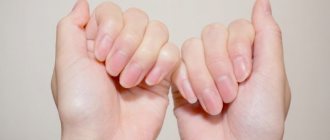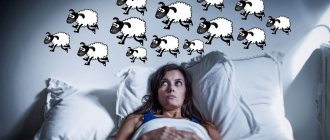Problem Definition
As a rule, a small amount of food is enough for a person to satisfy the feeling of hunger. However, after the meal, stress factors during the holidays make it difficult to resist an extra helping of your favorite treat.
In addition, the saturation center in the brain works with a slight delay. Therefore, even if you have eaten enough, you may still feel hungry for a while, which means you will continue to eat. But after a quarter of an hour, when the brain processes the information about the food received, you will feel that you did not stop on time and ate too much.
As for the symptoms of the problem, they will tell you about overeating:
- heaviness in the stomach;
- bloated stomach;
- nausea;
- general weakness, slowness;
- drowsiness;
- "rumbling" stomach.
All of them are caused by the fact that the gastrointestinal tract cannot cope with the increased load and malfunctions. Which means he needs help.
Restoring the pancreas after overeating
This organ secretes the necessary enzymes for digesting food, and if there are not enough of them, the gastrointestinal tract will definitely rebel. Chronic overeating and abuse of heavy foods lead first to reactive pancreatitis, and then to the chronic form of this disease.
Symptoms of pancreatitis are heaviness in the stomach, heartburn, nausea, vomiting. If the correct diet and special diet are not followed, the disease often worsens. After the next relapse, you will need to go on a strict diet for 2-3 weeks, excluding all fatty, fried, smoked, spicy, pickled, salty and other indigestible foods.
A mono-diet, in which proteins, fats and carbohydrates are divided into meals, helps best. This allows the pancreas to tune in to produce specific enzymes, making it easier to work with.
Include whole grain porridge with water, light vegetable broths and soups, stewed vegetables and Jerusalem artichoke in your menu. Drink an infusion of rose hips, burdock, chicory and elecampane root, as well as tea from sophora or acacia flowers. For problems with the pancreas, it is also useful to eat blueberries, which, thanks to the antioxidants contained in the composition, protect it from acidification.
Remember to record everything you eat and drink in your food diary. This will allow you to track your diet and know exactly which foods and how they affect your well-being. If you don’t know how to keep a food diary, then ask a nutritionist consultant who has the appropriate education or has completed courses on proper nutrition.
You can easily be taught how to keep such a diary and correctly analyze its data at the School of Dietetics at the Wellness Consulting Academy. When studying online courses in dietetics, all this will be explained in detail and clearly.
General recommendations
You should not immediately go into your home medicine cabinet and take medications. You may be able to deal with the problem on your own.
Remember that you should not exercise immediately after eating. Vigorous exercise may cause nausea or vomiting. Therefore, be sure to give your body time to adapt.
Medicines
If the steps described above do not help and the symptoms of overeating continue to bother you, it’s time to turn to medical advances. She offers many remedies designed to improve digestion and relieve discomfort.
Almost all drugs designed to combat overeating are analogues of digestive enzymes that our body produces. Once in the gastrointestinal tract, they accelerate the breakdown of excess food, which our own enzymes cannot cope with.
But do not forget that these medications, like any other, have a number of contraindications and side effects. Therefore, before first use, be sure to read the instructions. Also, the right decision would be to consult a doctor.
Activated carbon, familiar to all of us, will also help relieve heaviness and bloating. This drug has proven itself well in the treatment of poisoning, because it adsorbs all toxins. But besides this, it can remove excess fat from the body, which causes unpleasant symptoms when overeating.
The optimal dosage of activated carbon is considered to be 1 tablet per 10 kilos of body weight. That is, if you weigh 60 kg, you need to take 6 tablets.
Why do we overeat?
You can overeat due to an incorrect diet or inability to plan your day and meals.
Let's say you didn't eat enough during the day: you didn't have time to have breakfast in the morning, and at lunch you quickly had a snack on the run.
Then in the evening, after all your work, you will most likely want to eat properly, you will have time to cook something or the opportunity to go to a cafe. You will finally be able to relax, please yourself, plus you are more likely to be very hungry... and overeat. The way out of this situation is to plan your meals and take care to feed yourself. Buy groceries in advance, take food with you to work, get up early to have breakfast. Then by the evening you will not be too hungry and tired, and you will not want to overeat. Learn to take care of yourself and not forget about your needs.
Overeating is a frequent accompaniment of diets and strict proper nutrition.
If a person has to eat only the right and permitted food for a long time, then at some point the desire to eat something “forbidden” and harmful overpowers him, and the person overeats and a breakdown occurs.
Those who diet “professionally” even have a legal way to fail - a cheat meal (translated from English: cheat meal: cheat - “cheat”, meal - “meal”). This is such a planned “legalized” overeating for a person who eats right and exercises all week, and on Sunday has a “stomach holiday”. And this is also very harmful, as it can contribute to obesity and the development of type 2 diabetes.
The cause of overeating may be a lack of nutrients.
For example, a person eliminated animal protein from his diet and began to eat a lot. This happens because the body gives a signal to replenish the missing microelements that it previously received from meat or animal products, and now it has to get them somewhere else. The solution is to work on a balanced diet, carefully consider your diet to get all the necessary substances.
Abuse of unhealthy food (fast food, processed foods, sweets, snacks) inevitably leads to overeating.
Such food has low nutritional value: it is high in calories, but extremely poor in protein, healthy vitamins, fiber and complex carbohydrates, which make you feel full for a long time. Semi-finished products and fast food, for the most part, contain fast carbohydrates, sugar and animal fats, so soon after such a meal a feeling of hunger sets in, and you want to eat again.
Perhaps you overeat because you are in a hurry or eat in front of the TV, looking at the computer, phone or book, you do not have the time and opportunity to feel whether you are full or not.
So you can, by inertia, eat much more than you need. Therefore, try to eat slowly and remove all sources of information and irritants.
Eating habits are influenced by childhood experiences.
If your parents or grandmother forced you to eat every last crumb (“Until you eat the porridge, you won’t leave the table!”), you may have gotten used to ignoring satiety signals and eating more than your body needs. Or now you force yourself to finish everything that is on the plate, because “you can’t throw it away.” In this situation, mindfulness helps - observe your feelings while eating and track the moment of satiety. You can also put less food on your plate if you feel bad about throwing it away. Forming your new, “adult” eating habits is not easy, but without them, overeating cannot be avoided.
Eating behavior is influenced by the modern world and consumer culture: - food has become accessible, there is a lot of it, it is tasty, it lies on the supermarket counter, and you just need to reach it with your hand and put it in the basket.
Or you pass by a candy store and smell vanilla (sometimes such places are specially sprayed with appetite-stimulating odors to attract visitors). You drive home and see on the subway, in a magazine, on billboards photographs advertising delicious, beautiful food, and this triggers a desire. You may not be hungry, but the smells, images, and beautiful packaging of food in the supermarket will make you buy and eat something you didn’t even think about a minute ago. This is called externalizing overeating - overeating under the influence of external stimuli.
Frequent cases of overeating can be triggered by psychological reasons, this is the so-called “stress eating.” And this is also very harmful, as it can contribute to obesity and the development of type 2 diabetes1.
These are bulimia (an attack of overeating, followed by a “purging” - inducing vomiting, taking laxatives and diuretics, excessive exercise), compulsive overeating (when a person eats constantly and little by little, without feeling hungry) and binge eating (when in one meal a person eats a huge amount of food, which would be enough for a small company). Typically, such episodes of overeating occur in moments of stress, after a hard day at work or a quarrel with loved ones. Then food becomes an attempt to drown out your feelings: fear, anxiety, anger, rage, irritation, fatigue. If you suspect you have one of these eating disorders, it is best to consult a psychotherapist. Coping with psychological overeating on your own is difficult.
Folk remedies
Traditional medicine also knows many techniques that will help cope with the consequences of overeating.
Everything that traditional medicine offers is taken at least half an hour after the first symptoms of the problem.
Diagnosis of stomach pain - what tests should be performed?
When diagnosing abdominal pain, a carefully collected medical history is important. The primary diagnosis is made by when symptoms continue, when they occur, and then when they disappear. The rhythm of bowel movements and possible changes in the appearance of the stool are important. You should also tell your doctor about the warning symptoms mentioned earlier.
A blood test, including a complete blood count, may provide some information about gastrointestinal bleeding or nutritional deficiencies.
It is important to check for H. pylori infection. For this purpose, blood tests, stool tests, or a sample taken during a gastroscopy are most often performed. Gastroscopy is a key method for diagnosing peptic ulcers, as well as some inflammations of the gastric mucosa.
In case of abdominal pain, imaging tests, primarily ultrasound, are mandatory. They allow you to confirm or exclude, for example, gallstones or kidney stones. If symptoms do not go away and all organic diseases of the gastrointestinal tract are excluded, functional diseases of the digestive system, which can cause stomach pain, should be diagnosed. These include, for example, pain in the epigastrium.
Diagnosis of functional disorders is difficult, since during their course nervous pain in the stomach is possible. Therefore, a consultation with a psychiatrist may also be required.











